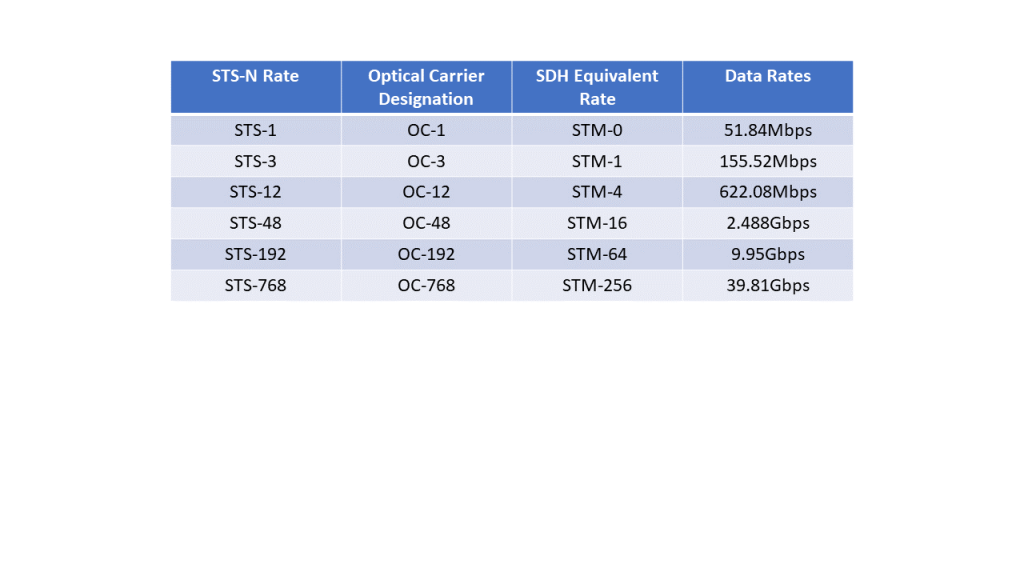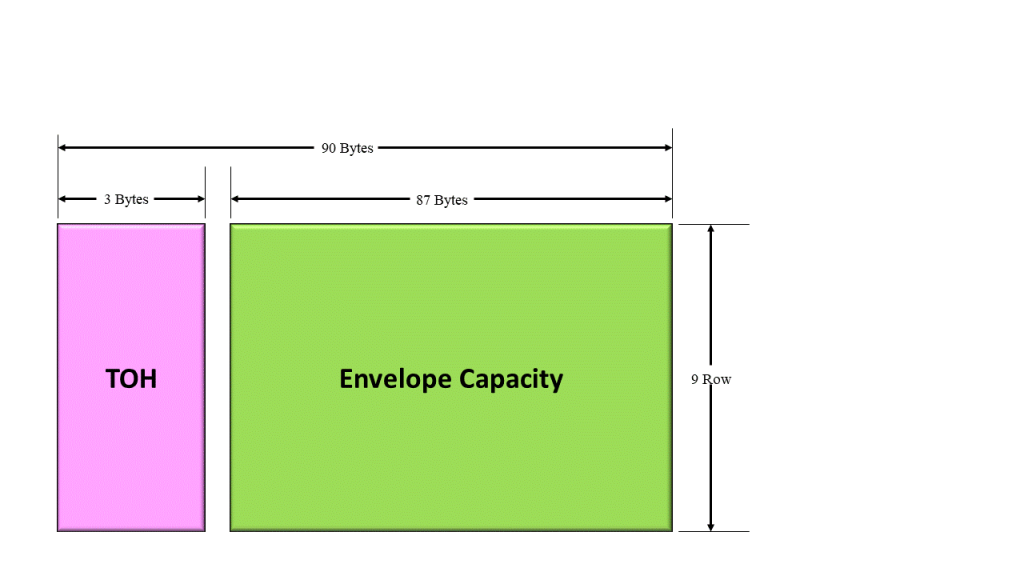SONET is short for “Synchronous Optical NETwork.”
SONET is primarily a North American Standard. The International (or the “Rest of the World”) version of SONET is called SDH, or Synchronous Digital Hierarchy.
SONET is an Optical Transport Standard that preceded OTN. Just like OTN supports multiple data rates (e.g., OTU1, OTU2, etc.). SONET supports a variety of rates, as I show below.
Table 1, List of Standard SONET and SDH Bit-Rates

Table 1 shows that the SONET/SDH Standards define bit rates up to almost 40Gbps.
This table also includes a column labeled STS-N Rates, where N can be integer numbers 1, 3, 12, 48, 192, and 768. We will talk a little bit about the STS-1 frame in this blog post. We will discuss STS-N frames and data rates in other blog posts.
What is the STS-1 Signal and Frame?
We will start this blog post by looking at the basic STS-1 Frame I show in Figure 1.

Figure 1, Illustration of the Basic STS-1 Frame (Simplified Drawing).
NOTE: STS stands for Synchronous Transport Signal.
The STS-1 frame consists of 9 rows and 90-byte columns (for a total of 810 bytes).
The frame repetition rate is 8000 frames/s.
Hence:
90 bytes/row x 9 rows/frame x 8000 = 51.84Mbps (which matches the STS-1 data rate in Table 1).
Of these 810 bytes, we refer to 27 bytes as the Transport Overhead (TOH) bytes.
We call the remaining 783 bytes the “Envelope Capacity.”
NOTE: The Envelope Capacity (for an STS-1 frame) is large enough to carry the following:
- 1 DS3 Signal
- 28 DS1 Signals
- 21 E1 Signals
Whenever we transport an STS-1 signal over a copper medium (such as a coaxial cable), we sometimes call this signal an EC-1 (Electrical Carrier – 1) signal. Likewise, whenever we transport an STS-1 signal over optical fiber, we can call it an OC-1 (Optical Carrier 1) signal.
In other blog posts, we will show that we can further subdivide the TOH (Transport Overhead) within the STS-1 frame into the Section Overhead (SOH) and the Line Overhead (LOH).
Figure 2 shows that the basic STS-1 frame consists of 3 basic portions.

Figure 2, The SOH (Section Overhead), LOH (Line Overhead), and the Envelope Capacity within an STS-1 Frame.
- The SOH (Section Overhead),
- The LOH (Line Overhead) and
- The Envelope Capacity
In other blog posts, I will discuss the SOH, LOH, and Envelope Capacity in greater detail.
I also present the SONET Reference Model in another blog post.

